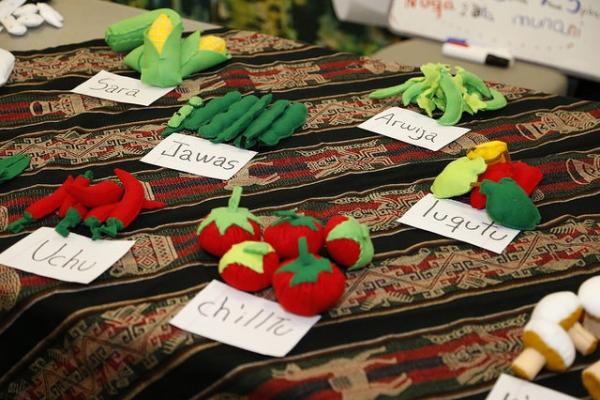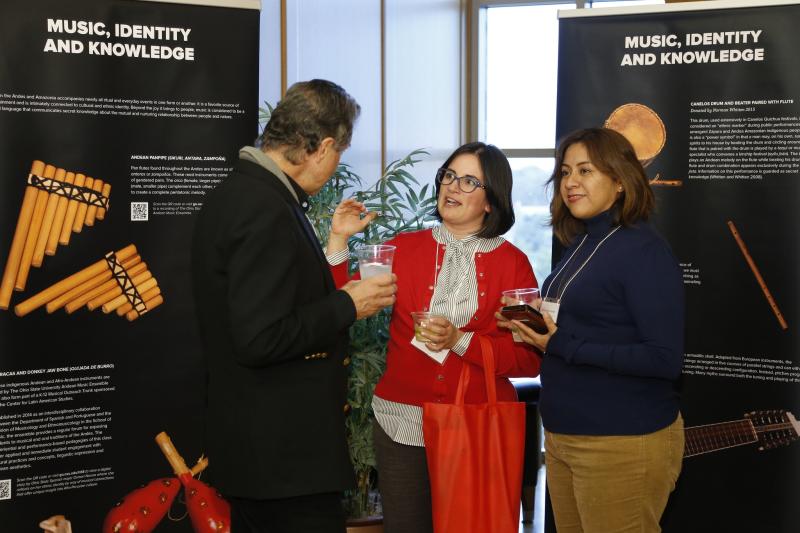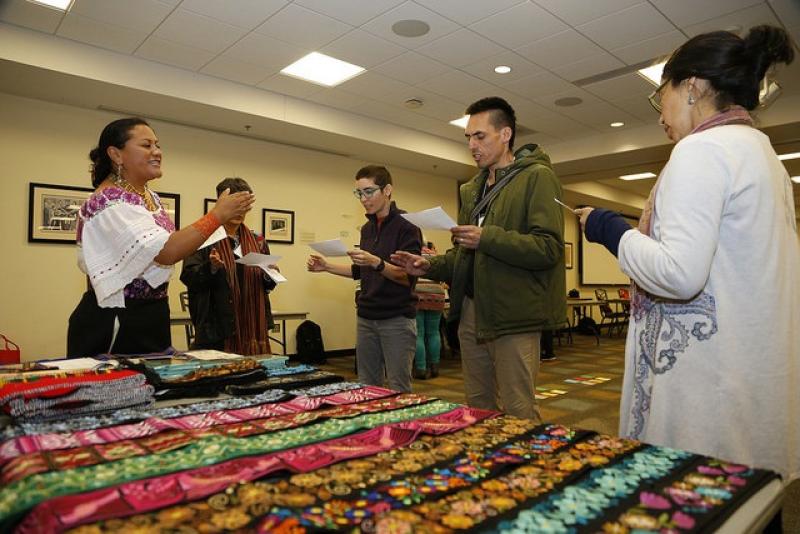Supporting Indigenous Languages and Cultures of Latin America

The Ohio State University Center for Latin American Studies (CLAS) hosted the second Symposium on Indigenous Languages and Cultures of Latin America (ILCLA), organized in conjunction with the fourth Symposium on Teaching and Learning Indigenous Languages of Latin America (STLILLA 2018) in October 2018. This event brought together instructors, practitioners, activists, scholars and learners from across the hemisphere who study indigenous languages and cultures of Latin America and the Caribbean.
ILCLA/STLILLA 2018 engaged participants in a hemispheric dialogue and served as a permanent forum for networking and research on theoretical, methodological, and pedagogical issues from trans-disciplinary perspectives. This forum enabled attendees from around the world to interact with leading experts in the fields of education, language policy, linguistics, cultural studies, ethnomusicology, anthropology, informatics, and other disciplines.

The symposium included a feria de los idiomas, two pre-symposium plenary sessions, three keynote addresses, and over forty panels and presentations by fifty-five conference presenters. The event also showcased the film, Wiñaypacha, at the Gateway Film Center. This is the first Peruvian movie filmed entirely in the Aymara language and a welcome addition to a growing canon of films that celebrate and revitalize indigenous languages.
The 2018 keynote speakers were Dan Everett, Dean of Arts and Sciences at Bentley University, María Coca Chavarría, Professor for the Graduate School at San Marcos University, Gaspar Pedro González, Author and Poet.
ILCLA/STLILLA 2018 brought in over 120 attendees from 55 colleges and institutions from 1 countries across the hemisphere. This symposium has contributed to the teaching and learning, dissemination and preservation, study and advancement of indigenous languages and cultures of the region. The Ohio State University plans to host the third ILCLA/STLILLA Symposium in autumn 2020.

ORGANIZERS & SUPPORTERS
This event was sponsored in part by a U.S. Department of Education Title VI grant to The Ohio State University Center for Latin American Studies, in addition to the following co-sponsors:
- The Center for Latin American Studies, The Ohio State University
- The Association for Teaching and Learning Indigenous Languages of Latin America
- The Ohio State University Libraries
- The Ohio State University Department of Spanish and Portuguese
- The Ohio State University College of Arts & Sciences
- The Ohio State University Department of Linguistics
- University of Chicago Center for Latin American Studies
- University of Utah Center for Latin American Studies
- University of Wisconsin-Madison Latin American Studies, Caribbean, and Iberian Studies
- Vanderbilt University Center for Latin American Studies
- Indiana University Center for Latin American and Caribbean Studies
- Tulane University Roger Thayer Stone Center for Latin American Studies
- University of Texas at Austin LLILAS Benson Latin American Studies & Collections
- University of Michigan Center for Latin American and Caribbean Studies
- University of Georgia Latin American and Caribbean Studies Institute
In addition to lowering the cost of registration for international attendees, CLAS also sponsored the travel of 5 international faculty and graduate student presenters and waived registration for local community college and K12 institutions.
PARTICIPANT REMARKS:
“I love the balance of indigenous activists, language teachers and researchers. The OSU organizers are extremely creative and experts at integrating students with members of diverse communities in this event. The dinner dance, reception, film and Feria de los Idiomas were wonderful opportunities to interact in different ways and build relationships”
“I found that so many sessions focused on differences/nuances within a language and local vs. Regional contents. I enjoyed hearing about the different formats that contain the “sabidurías” of a culture/people. I am always learning about this topic of which I am not an expert. The “Feria de los idiomas” was especially useful in this way.”
“It was exciting to hear some of the talks by emerging scholars incorporating indigenous languages into their study. Also fantastic to see the different projects connecting communities across boundaries.”
